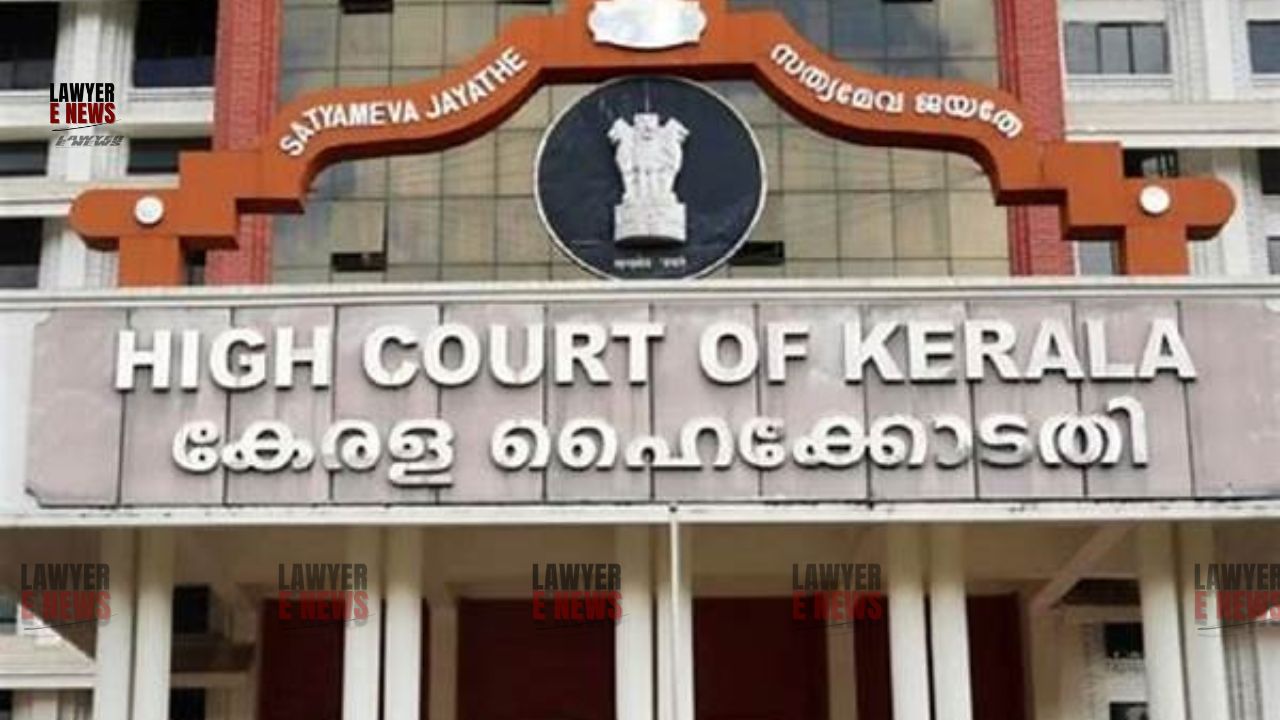-
by Admin
15 February 2026 5:35 AM



Kerala High Court, consisting of Justice Raja Vijayaraghavan V and Justice G. Girish, dismissed a second writ petition in the case of Sahala P.P. v. State of Kerala & Others (W.P. (Crl) No. 1027 of 2024), challenging the preventive detention of the petitioner's husband under the Kerala Anti-Social Activities (Prevention) Act, 2007 (KAA(P)A). The petition was dismissed on the grounds that the issues raised were already adjudicated in a previous writ petition (W.P. (Crl) No. 686/2024), and filing successive petitions constituted an abuse of process of law.
The petitioner's husband was detained under Section 3(1) of KAA(P)A following an order by the District Magistrate, Malappuram. The preventive detention was confirmed by the government on July 29, 2024. The petitioner had earlier filed W.P. (Crl) No. 686/2024 challenging the detention, which was dismissed by the Court on July 29, 2024.
In this second writ petition, the petitioner raised two main issues:
Delay in consideration of representation: The petitioner argued that the government had delayed considering her representation dated June 18, 2024, against her husband's detention.
Maximum detention period not explained: The petitioner contended that the government's confirmation order did not specify the reason for imposing the maximum detention period of six months.
Delay in Consideration of Representation
The petitioner submitted a representation on June 18, 2024, requesting the release of her husband. The petitioner argued that the government failed to consider the representation promptly, which should result in the annulment of the detention order. However, the Court noted that the petitioner filed the earlier writ petition (W.P. (Crl) No. 686/2024) on June 24, 2024, before waiting for the government’s decision on the representation.
"The petitioner cannot blame the Government for the delay in the disposal of the representation after instituting a writ petition immediately after its submission," the Court observed.
The government confirmed that the representation was received on June 22, 2024, and was disposed of on July 30, 2024. Given that the petitioner filed a writ petition before allowing sufficient time for a response, the Court found no merit in the petitioner's challenge.
Maximum Detention Period
The petitioner also argued that the government's order confirming the preventive detention for six months did not provide a specific explanation for the maximum period of detention. The Court rejected this argument, relying on the Supreme Court's decision in Vijayakumar v. Union of India, which held that the government is presumed to have applied its mind when confirming the maximum period of detention.
"The absence of a specific mention of the detention period does not vitiate the order when the government has the power to revoke or modify the order at any time," the Court stated, dismissing the petitioner’s argument.
Abuse of Process of Law – Repeated Writ Petitions
The Court observed that the petitioner had already raised the same issues in the earlier writ petition (W.P. (Crl) No. 686/2024), which was dismissed on July 29, 2024. Raising the same grounds in a second petition constituted an abuse of the process of law.
"Filing successive petitions on the same grounds amounts to an abuse of process of law," the Court emphasized, dismissing the writ petition.
The Kerala High Court dismissed the writ petition, holding that the petitioner's challenge on the grounds of delay in considering the representation and failure to explain the maximum detention period was without merit. The issues had already been addressed in the previous writ petition, and filing a second petition on the same grounds was an abuse of court process.
Date of Decision: October 21, 2024
Sahala P.P. v. State of Kerala & Others
